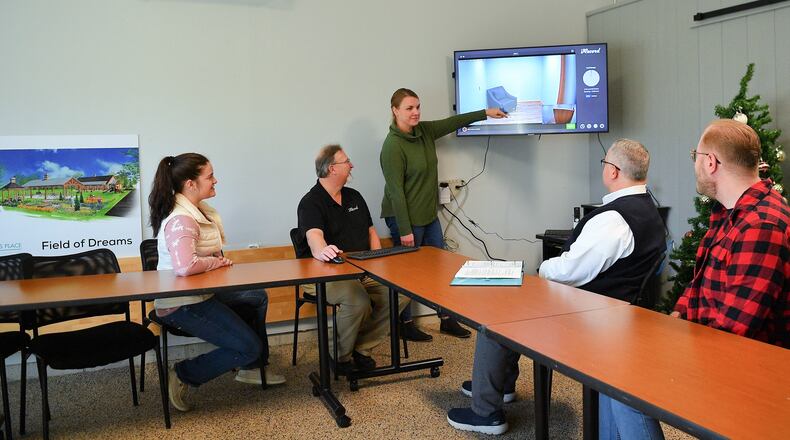Child interviews and other related services the center will provide previously were obtained at an out-of-county agency that no longer is available for local agencies’ use, she said. Among those services were medical and mental health supports.
Miami County Prosecutor Tony Kendell said the services of a CAC are “needed badly.”
“I am all for law enforcement, but the fact … is most street cops want to run when it comes to having to interview a child. It is difficult, very specialized and you have to have a knack for it, too,” Kendell said.
The startup costs for the program totaled $160,612.
Program supporters including police agencies from across the county — who earlier this year met with the county commissioners, asking them to pay the costs from the county’s American Rescue Plan Act, or ARPA, funds. The commissioners said they liked the center concept but wanted to see other governments across the county also participate in helping cover the costs.
In the end, the county commission voted recently to pay $124,900 toward the startup, while The Troy Foundation awarded $35,712 for equipment.
The first-year costs then will include contributions from local governments, including the cities of Troy, Piqua and Tipp City paying $5,000 each and the villages of West Milton and Covington contributing $1,000 each, said Charlotte Colley, the county commissioners’ administrator.
In addition, the county Department of Job and Family Services will contribute around $50,000 from state funding toward first-year costs, Colley said.
“I, for one, like the collaboration. I would like to thank Isaiah’s Place for going out and bringing everyone along in this project. It is needed,” Commissioner Wade Westfall said when the commission approved the funding.
“It is a needed project,” agreed Commission President Ted Mercer. “When they came here the first time, we thought we needed buy-in from the community. It sounds like we got that.”
Knisley said the formal start of the center will be in January, but collaboration already has begun on cases that have presented “unique difficulties.”
“It will be somewhat of a slow roll-out as we work out the kinks and make changes as we go,” Knisley said.
The support of the commission is appreciated, she said. “We appreciate the faith demonstrated by the commissioners in the Child Advocacy Center, and could not do this without their support.”
Contact this contributing writer at nancykburr@aol.com
About the Author
